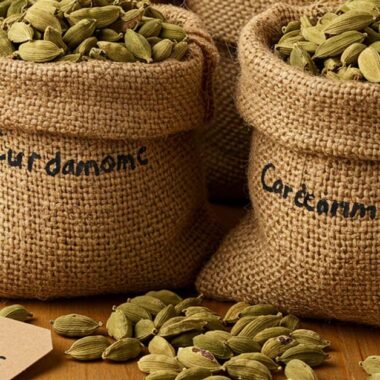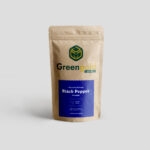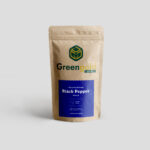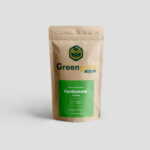Cardamom is a nutrient-demanding crop that thrives in rich, well-balanced soil. To grow high-quality cardamom, farmers use organic and chemical fertilizers to improve plant health, yield, and essential oil content.
Let’s explore the best fertilizers for cardamom farming and how they help produce the finest Idukki cardamom! 🏡🌾
🌱 1. Organic Fertilizers: Natural & Sustainable
Organic fertilizers improve soil fertility while promoting sustainable farming. They release nutrients slowly and enhance microbial activity.
✅ Best Organic Fertilizers for Cardamom
🔹 Cow Dung & Farmyard Manure (FYM) – Enriches soil with nitrogen, phosphorus, and potassium.
🔹 Neem Cake – A natural pest repellent that also improves soil structure.
🔹 Vermicompost – Boosts microbial activity and root development.
🔹 Bone Meal – Provides phosphorus for stronger roots and pod formation.
🔹 Wood Ash – A natural potassium source for healthy plant growth.
💡 Tip: Apply organic fertilizers every 3-4 months to maintain long-term soil fertility! 🌿✨
🧪 2. Chemical Fertilizers: Fast Growth & Higher Yields
Chemical fertilizers supply specific nutrients quickly to support faster plant growth and higher yields. However, they should be used in moderation to prevent soil depletion.
✅ Best Chemical Fertilizers for Cardamom
🔹 Nitrogen (N) – Promotes lush green leaves and healthy plant growth.
- Recommended: Urea (46% N) or Ammonium Sulfate (21% N).
🔹 Phosphorus (P) – Strengthens roots and flower formation. - Recommended: Single Super Phosphate (SSP) or Di-Ammonium Phosphate (DAP).
🔹 Potassium (K) – Improves disease resistance and pod quality. - Recommended: Muriate of Potash (MOP) or Sulfate of Potash (SOP).
🔹 Magnesium (Mg) – Enhances essential oil content in cardamom pods. - Recommended: Magnesium Sulfate (Epsom Salt).
🔹 Micronutrients (Zn, Fe, B, Cu) – Supports overall plant health and stress resistance. - Recommended: Foliar sprays with micronutrient mixtures.
💡 Tip: Use a balanced NPK (50:30:50 kg/ha) fertilizer schedule for high yields! 🧪🌱
🌿 3. Bio-Fertilizers: Natural Growth Boosters
Bio-fertilizers introduce beneficial microbes to improve nutrient absorption, plant immunity, and soil fertility.
✅ Best Bio-Fertilizers for Cardamom
🔹 Azospirillum & Rhizobium – Natural nitrogen-fixing bacteria for healthy growth.
🔹 Phosphate Solubilizing Bacteria (PSB) – Enhances phosphorus uptake.
🔹 Trichoderma & Pseudomonas – Bio-control agents for root disease prevention.
🔹 Mycorrhizal Fungi – Improves water and nutrient absorption.
💡 Tip: Apply bio-fertilizers once every 6 months for long-term soil health! 🌱🌍
📌 Best Fertilizer Schedule for Cardamom Farming
✅ At Planting:
- Mix organic manure (10-15 kg per plant) with neem cake.
- Add Phosphate (SSP/DAP) and Magnesium Sulfate.
✅ After 3 Months:
- Apply Nitrogen (Urea) and Potassium (MOP/SOP).
- Use vermicompost or farmyard manure to boost soil microbes.
✅ Flowering & Pod Formation Stage:
- Apply NPK fertilizer (50:30:50 kg/ha) to improve pod size.
- Use foliar sprays with micronutrients.
✅ After Harvest:
- Add compost and bio-fertilizers to replenish soil nutrients.
💡 Tip: Always mulch with dried leaves or coconut husks to retain moisture and reduce soil erosion! 🌾🍂
🛒 Get the Best Idukki-Grown Cardamom!
For the richest aroma and premium quality, choose hand-picked, naturally grown Idukki cardamom! 🌿✨
👉 Shop Now 🛍️💚
🌟 Conclusion
The best fertilizers for cardamom farming combine organic, chemical, and bio-fertilizers to ensure healthy plant growth, high yields, and superior quality pods. A balanced approach helps maintain soil fertility and long-term sustainability. 🌱🔥












